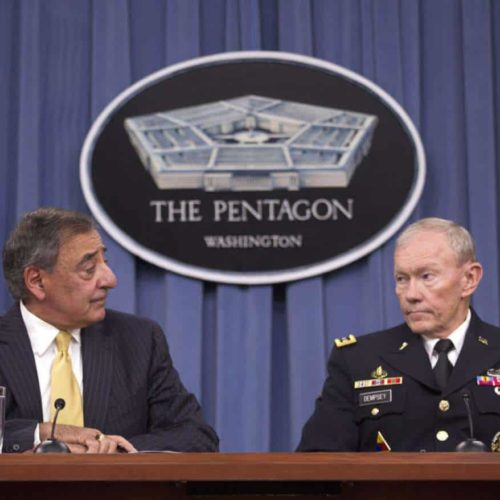Introduction
The Navy, like the rest of the Department of Defense, can’t keep its books straight, according to a Government Accountability Office report released this week.
The report is the latest in a string of studies pointing to shortcomings in the Pentagon’s accounting systems, raising new concern that the department may not be ready for an audit by the congressionally mandated date of Sept. 30, 2017 — even after 23 years of effort to bring its requirements into line with federal standards.
Currently, the Navy’s Fund Balance with Treasury account — a Treasury account that contains money already appropriated to the Navy and the Marines — has more than in $22 billion in unmatched disbursements and expenditures that affect more than 10,000 lines of accounting, according to the GAO report.
The account is supposed to be reconciled with Treasury ledgers each month, much like reconciling a checkbook to ensure its overall reliability. But the Navy has been unable to do so, leaving it unsure of how much money it has available and how its funds have been spent, the report said.
Many accounting snafus surround the Navy’s handling of its treasury account, the report explained.
Officials at the Defense Finance and Accounting System in Cleveland, Ohio are responsible for reconciling the ledgers each month, but the computer system they use contains more than 650 bugs that need repair before data from the Fund can be considered reliable. Over 200 of these affect audit readiness, and 20 require immediate action.
Officials in Cleveland also cannot reconcile the activity in their own system with the activity in the Navy’s general ledger. As a potential solution, the office adopted a $29 million system four years ago that is still ineffective today and “does not yet provide the information needed to identify and resolve the underlying causes of differences between [the Defense Finance and Accounting System] and [Navy’s] general ledger system.”
Despite the unreliability of the accounting system, Defense officials have not performed post-mortem data checks to ensure a reasonable degree of reliability. The report comes down hard on i those who work in the Cleveland office, saying that they lack adequate training to “maintain a level of competence that allow[s] them to accomplish their assigned duties.” The report suggested that the Navy could not blame base reallignments or closures for the current problems with inexperienced and untrained personnel. Those changes took place three to five years ago, between 2006 and 2008, the report notes.
The officials have used so-called “forced-balance entries” to reconcile discrepancies between the Navy’s books and those of the Treasury. “These types of adjustments, made without supporting documentation but to force items into balance, are commonly referred to as ‘plugs’ and can mask much larger problems in the accounting data,” the GAO said.
Pentagon policies for the Cleveland office lacked adequate detail on appropriate roles and responsibilities of key officials, the GAO said. With the exception of recently issued Marine Corps procedures, “There was no evidence that the policies and procedures being followed had been reviewed and approved by management.” the report said.
Both the Navy and Marine Corps recognize the importance of reconciling their Fund Balance with Treasury accounts, according to their comments in the report. The Marine Corps is already actively taking steps to reconcile its Fund, and the Navy is developing a plan, expected out this month, to address weaknesses in its audit readiness.
The Defense Department is the only federal agency to never receive a positive review of its accounting statements by auditors. Although Defense Secretary Leon Panetta publicly promised this fall that some of its accounts would be auditable by 2014, ahead of the 2017 deadline, his aides successfully pressured House and Senate lawmakers not to turn that promise into a legal requirement in the 2012 defense authorization bill approved last week.
Read more in National Security
National Security
Fissile materials remain poorly protected
Nuclear security risks remain high in countries with active fissile material programs
National Security
Problems with battlefield smartphones
Soldiers worry about distraction


Join the conversation
Show Comments